The Coastal Bend’s annual hurricane season starts Saturday, June 1 — are you prepared?
To better plan and be ready, it is recommended that people sign up for Reverse Alert emergency notifications.
The city of Corpus Christi and Nueces County partnered to provide the emergency alert program for citizens. It allows officials to alert the public about a potential safety hazard or concern through a voice or text message.
Sign up by texting BEREADYCCNC to 888777 to receive alerts.
The Caller-Times put together its annual guide to everything you need to know on preparation, forecast and things to know for the weeks to come.
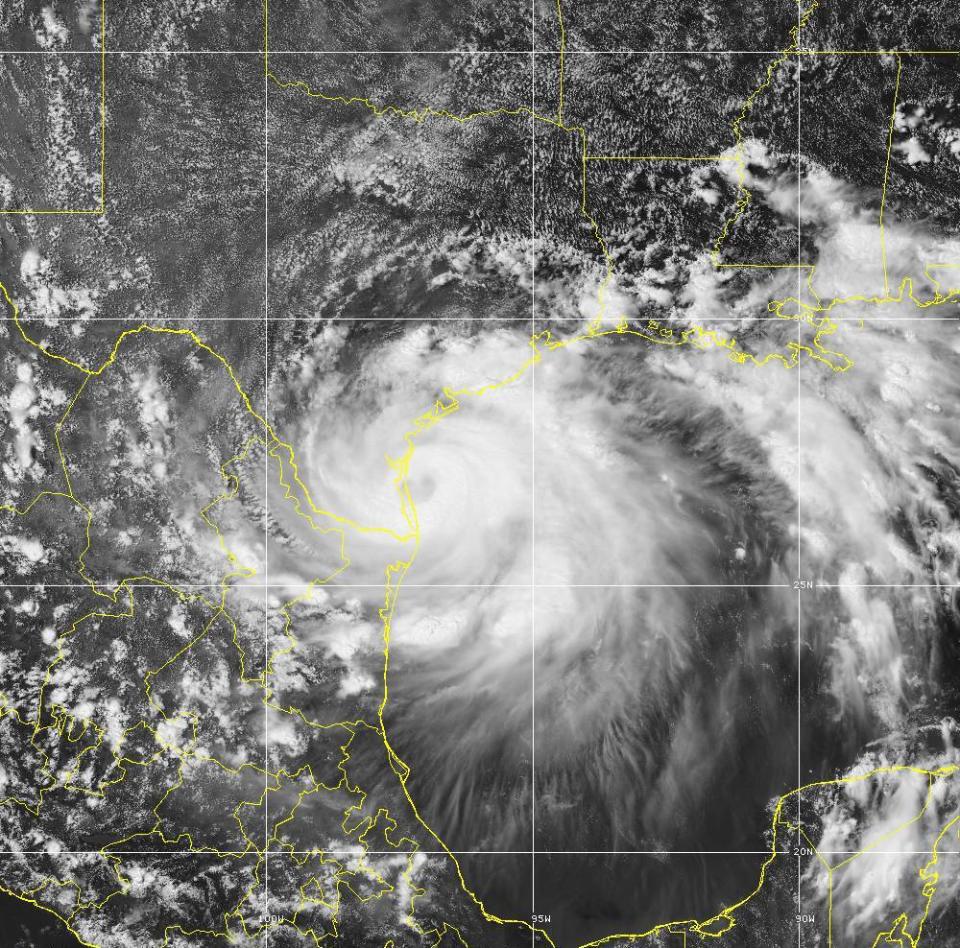
What is the forecast for the 2024 season?
Forecasters from Colorado State University told USA Today in April that an “extremely active” hurricane season is likely for 2024. The forecast includes the highest number of hurricanes ever predicted by the institution.
“We’re coming out with a very aggressive forecast: 23 named storms, 11 hurricanes and five major hurricanes,” Phil Klotzbach, a senior research scientist in the atmospheric science department at Colorado State, said. “And even that is so undercutting all the model guidance.”
The National Oceanic and Atmospheric Administration released the 21 names for potential hurricanes, which include Alberto, Beryl, Chris, Debby, Ernesto, Francine, Gordon, Helene, Isaac, Joyce, Kirk, Leslie, Milton, Nadine, Oscar, Patty, Rafael, Sara, Tony, Valerie and William.
How many hurricanes have impacted Corpus Christi?
While there have been dozens of tropical storms, tropical depressions and hurricanes to hit Corpus Christi, there were three major hurricanes that affected the community the most — the hurricane of 1919, Hurricane Celia in 1970 and Hurricane Harvey in 2017.
The storm of 1919 was a devastating event in Corpus Christi’s history. On Sept. 14, a hurricane made landfall 25 miles south of downtown Corpus Christi, bringing with it 115 miles per hour winds and a 16-foot storm surge that inundated downtown and North Beach. People were swept into the water as their homes and businesses collapsed in the churning surf. Many drowned in the chaos, and both living and dead were swept across Nueces Bay on storm debris and deposited on White Point in Portland. The official death toll was 284, but researchers speculate the count may have been anywhere between 600 to 1,000 victims.
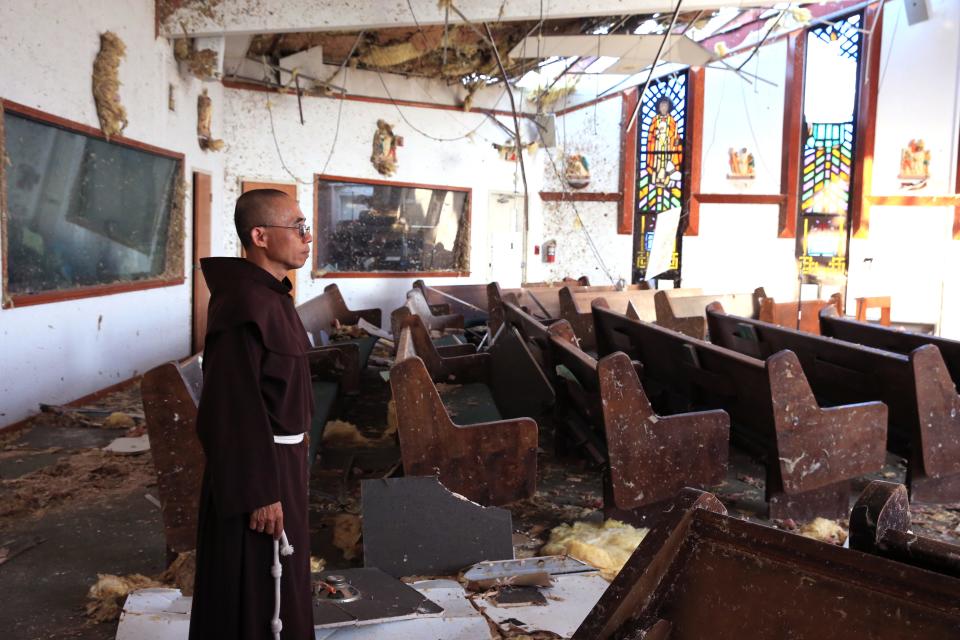

Before Hurricane Harvey, a hurricane hadn’t made landfall in Corpus Christi since Hurricane Celia hit in 1970. Celia’s eye passed through Corpus Christi on Aug. 3, 1970. Celia produced sustained winds of 110 to 130 miles per hour, but gusts in some areas reached 180. Fifteen people were killed in South Texas and the storm caused $500 million in damage. In Corpus Christi, 70% of residences were damaged. In Port Aransas, the number was closer to 75%. And in Portland, 90% of the homes and businesses sustained damage.
In most recent year, Hurricane Harvey resulted in the loss of 68 lives — the highest number in the state since the hurricane of 1919. Harvey started as a tropical wave emerging from the eastern Atlantic. It slowly developed and became a tropical storm on Aug. 17, 2017, moving through the Yucatán Peninsula. On Aug. 23, 2017, Harvey became a tropical cyclone and quickly became a Category 4 hurricane the following day. On Aug. 26, 2017, Hurricane Harvey made landfall east of Rockport with winds of 130 miles per hour. After going back out to sea, Harvey made a second landfall in Texas three hours later in a weaker state. Harvey stalled inland for a couple of days, dropping heavy rainfall and causing widespread flash-flooding.
How and what do I do to prepare?
In the case your family is not together when a hurricane strikes, be sure to plan in advance.
Important questions to ask yourself are: How will we get to a safe place? How will we contact one another? What will we do in different situations?
In preparation for a hurricane, ask an out-of-state relative or friend to serve as a “family contact” and have your family check in with the contact in case of separation.
Teach family members how and when to turn off gas, electricity and water, how and when to call 9-1-1, police or the fire department and which radio and TV stations to tune into for emergency situations.
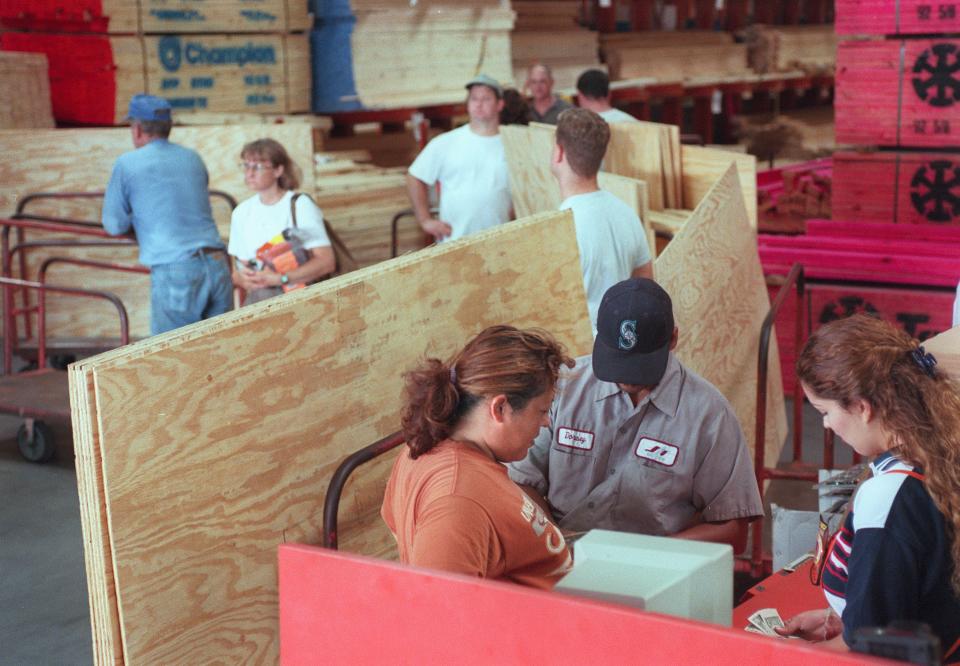

Preparing your home:
-
Trim trees and shrubbery and replace broken fencing.
-
Inspect your roof for loose shingles and clear clogged rain gutters.
-
Reinforce garage doors and double entry doors with heavy duty foot and head bolts.
-
Install hurricane shutters and inspect existing shutters, if possible.
-
Store lawn furniture and other loose, lightweight objects.
-
Check mobile home tie-downs for rust and breakage. Mobile home residents should evacuate when told.
Packing your emergency kit:
-
A battery-powered portable television or radio with extra batteries.
-
A flashlight with extra batteries.
-
At least a seven-day supply of non-perishable food and water. One gallon of water per person per day is recommended.
-
Kitchen accessories, cooking utensils and a manual can opener.
-
A first aid kit and manual.
-
A whistle and a white distress flag.
-
Formula, baby food, diapers and pacifiers.
-
Sanitation and hygiene items, including instant hand sanitizing gel, moist towelettes, toilet paper and feminine hygiene products.
-
Prescription medications, eyeglasses, contact lens solution and hearing aid batteries.
-
Extra clothing, blankets and sleeping bags.
-
Matches in a waterproof container.
-
A phone car charger.
-
A map showing county roads and highways.
-
A tire repair kit, booster cables, a pump and flares.
-
Cash, as some businesses may not accept credit/debit card transactions during or after the storm.
-
Photocopies of identification, insurance, prescriptions, household inventory, credit cards, important documents (i.e., birth/marriage certificates and titles) and your latest utility bill.
What do I do during a hurricane watch/warning?
When in a hurricane watch, meaning conditions are expected within 48 hours, here’s what to do:
-
Listen to a battery-operated radio or television for hurricane progress reports.
-
Review the items in your emergency kit and add items you may have missed.
-
Register those in your family or care with special needs to the State of Texas Emergency Assistance Registry. The free program provides local emergency planners and emergency responders additional information on the needs in their community. To register, visit tdem.texas.gov/response/state-of-texas-emergency-assistance-registry.
-
Make sure your vehicle is full with gas.
-
Bring in outdoor objects including lawn furniture, toys, and garden tools and anchor objects that cannot be brought inside.
-
Secure buildings by closing and boarding up windows. Remove outside antennas.
-
Turn refrigerator and freezer to coldest settings. Open when absolutely necessary and close quickly.
-
Store drinking water in clean bathtubs, jugs and bottles.
-
Review evacuation plan.
-
Moor boat securely or move it to a designated safe place. Use rope or chain to secure boat to trailer. Use tie-downs to anchor trailer to the ground or house.
A hurricane warning means conditions are expected within 36 hours, so here’s what to do:
-
Listen constantly to a battery-operated radio or television for official instructions.
-
If in a mobile home, check tie-downs and evacuate immediately.
-
Store valuables and personal papers in a waterproof container on the highest level of your home.
-
Avoid elevators.
How should I plan my evacuation?
The city of Corpus Christi, Corpus Christi Regional Transportation Authority and Corpus Christi ISD have devised a system to help people get safely out of the path of a possible incoming hurricane.
People should head to the nearest RTA bus stop and you will be taken (free of charge) to a hub for processing. By way of a CCISD bus, you will be transported out of town and out of harm’s way. For more information, contact the Office of Emergency Management at 361-826-1100.
Plan on evacuating on your own? Know your route and have a plan for where you will stay once you reach your destination. Be sure to leave as soon as possible, avoid flooded roads and watch out for washed-out bridges.
Secure your home by unplugging appliances, turning off electricity and the main water valve. Turn off propane tanks, empty refrigerator and freezer, lock your home and take all pets with you.
Be sure to inform someone outside of the storm where you are going in case of an emergency.
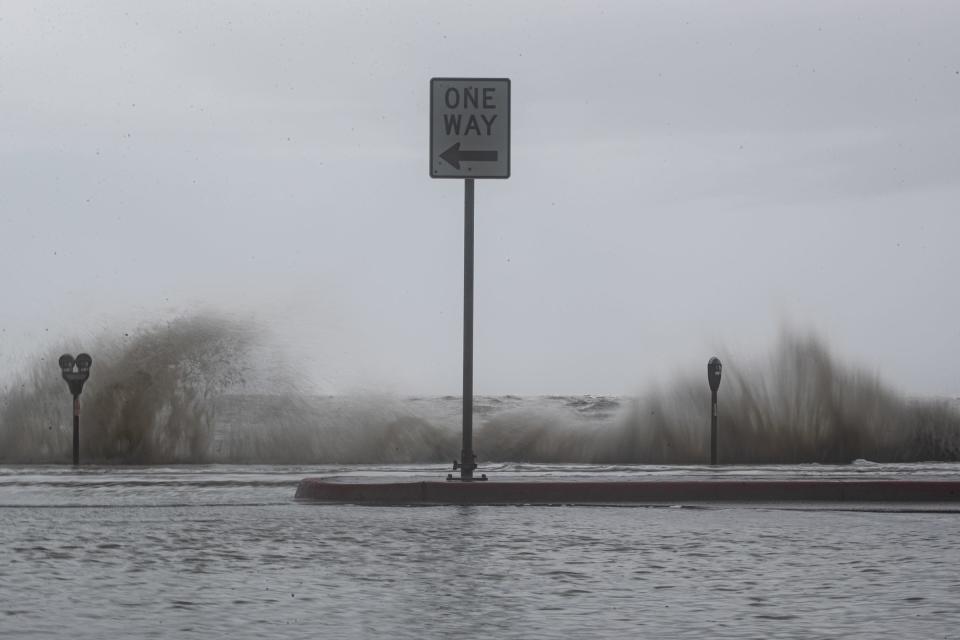

Alternative evacuation routes:
-
From downtown Corpus Christi, follow US 181 north to San Antonio
-
From downtown Corpus Christi, follow US 181 north to SH 123 in Karnes City
-
From downtown Corpus Christi, take SH 35 to Gregory, take a left on FM 136 through Bayside to FM 2678 to US 183 and follow north to Austin
-
From Corpus Christi, take FM 624 west from Calallen through Orange Grove to SH 16 north to San Antonio
-
Take Padre Island Drive to SH 44 west through Robstown, go through Alice, head to Freer and go to US 59 to Laredo
Do I need home insurance for hurricanes?
After a hurricane, floods are inevitable.
Talk to your insurance agent, or look online, to get a flood, windstorm and hurricane policy. Be sure to act quickly because there’s a 30-day waiting period before it’s active.
As well, once a named storm enters the Gulf of Mexico, most insurance companies enact a moratorium — a temporary suspension — and stop selling new policies or making changes to existing ones.
Make sure to consider comprehensive auto insurance that will cover damage to your car from flood, hail, fire or wind.
What do I do if I want to stay home and not evacuate?
While some may evacuate if a hurricane is set to make landfall, others might stay in town and brave the storm.
Those who remain should abide by instructions issued by city officials and leave immediately if ordered.
If you are staying, take refuge in a small interior room, closet or hallway on the lowest level during the storm. Put as many walls between you and the outside as you can. Stay away from windows, skylights and glass doors.
If the eye of the storm passes over your area, there will be a short period of calm, but as soon as the eye passes the wind speed will rapidly increase to hurricane force winds coming from the opposite direction. Be sure to stay sheltered until the storm has fully passed if you’re staying home.
What do I do after a storm?
Be sure to stay tuned to local radio, television and online news sources for information.
If you’re able to, help injured people or trapped people. Do not move seriously injured people unless they are in immediate danger of further injury. Give first aid where appropriate and call for help.
Once authorities advise to return home, do so. On your way back, avoid loose or dangling power lines and report them immediately to the power company, police or fire department.
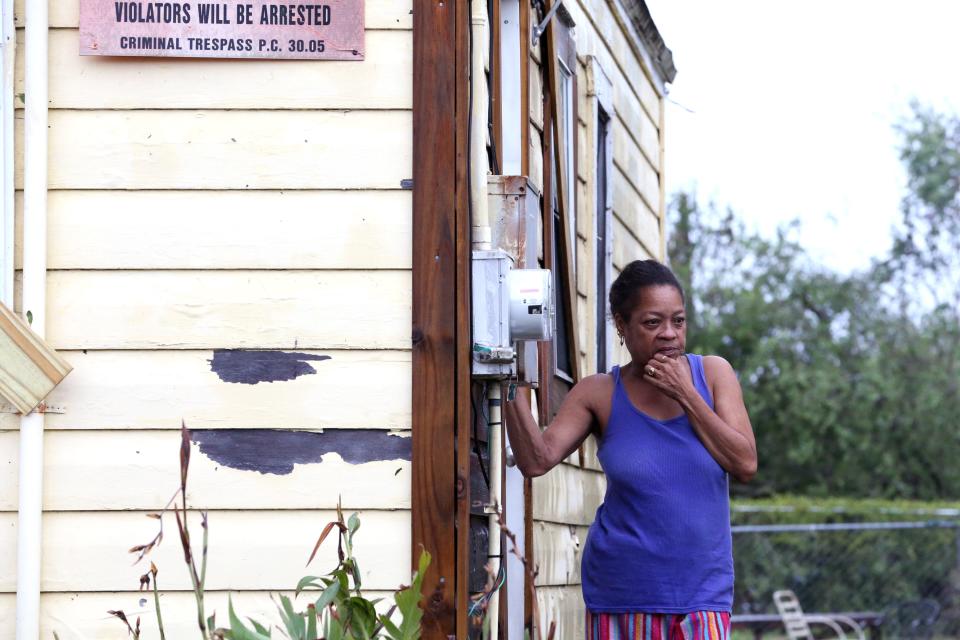

Be sure to enter your home with caution as snakes, insects and animals may be inside from avoiding floods. Open your windows and doors to ventilate and dry your home in the case of a flood. Check your refrigerator for spoilage and discard if necessary.
If there is damage, take photos for insurance claims.
If you need to drive anywhere, only do it if necessary. Avoid flooded roads and washed-out bridges.
RELATED COVERAGE
More: Summer camps: Here is where you can send your little one(s) to have fun over break
More: ‘Tenacity paid off’: Caller-Times staff takes home Texas Managing Editors awards for coverage
John Oliva covers entertainment and community news in South Texas. Contact him at [email protected] or X @johnpoliva.
Consider supporting local journalism with a subscription to the Caller-Times.
This article originally appeared on Corpus Christi Caller Times: Get ready: Here’s what to know for hurricane season in the Coastal Bend
Source Agencies


